
Spirit was an American rock band founded in 1967 and based in Los Angeles. Their most commercially successful single in the United States was "I Got a Line on You". They were also known for their albums, including their self-titled debut album, The Family That Plays Together, Clear, and Twelve Dreams of Dr. Sardonicus.

Zabriskie Point is a soundtrack album to the Michelangelo Antonioni film of the same name. It was originally released April 11, 1970 in the US and May 29, 1970 in the UK and features songs recorded by contemporary rock acts of Antonioni's choosing, including Pink Floyd, the Grateful Dead, and the Kaleidoscope.
Jo Jo Gunne was an American rock band formed in Los Angeles, California, United States, in 1971 by Jay Ferguson and Mark Andes after they had left the rock band Spirit. The band was named after the Chuck Berry song "Jo Jo Gunne". The band released their eponymous debut album in 1972 and had a top 10 hit song, "Run Run Run", in the UK. They released three further albums before disbanding in 1974. They reunited in 2005 for a time to record a fifth album, Big Chain.
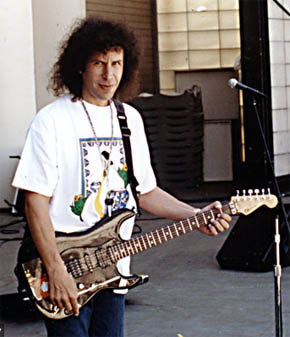
Randy Craig Wolfe, known as Randy California, was an American guitarist, singer and songwriter, and one of the original members of the rock group Spirit, formed in 1967.
Edward Claude Cassidy was an American jazz and rock drummer who was one of the founders of the rock group Spirit in 1967.
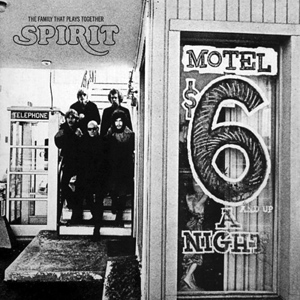
The Family That Plays Together is the second album by the American rock band Spirit. It was released by Ode Records in December 1968. It was voted number 575 in Colin Larkin's All Time Top 1000 Albums 3rd Edition (2000).
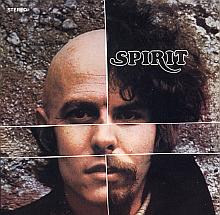
Spirit is the debut studio album by American rock band Spirit, released on January 22, 1968 by Ode Records. The album was commercially successful, spending more than six months on the Billboard album charts, peaking at #31. It was voted number 658 in Colin Larkin's All Time Top 1000 Albums 3rd Edition (2000).
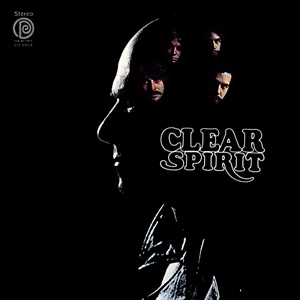
Clear is the third studio album by American rock band Spirit. It was released in August 1969 by Ode Records.
John Arden "Jay" Ferguson is an American rock and pop musician known for his work with the bands Spirit and Jo Jo Gunne, and his 1978 solo hit "Thunder Island". His later career has been as a composer of music for television programs and films. Many people know Ferguson for composing the theme song for the American version of The Office on NBC.

Time Circle is a compilation album by Spirit, issued in 1991.

Emerson, Lake & Palmer is the debut studio album by English progressive rock band Emerson, Lake & Palmer. It was released in the United Kingdom by Island Records in November 1970, and in the United States by Cotillion Records in January 1971. After the group formed in the spring of 1970, they entered rehearsals and prepared material for an album which became a mix of original songs and rock arrangements of classical music. The album was recorded at Advision Studios in July 1970, when the band had yet to perform live. Lead vocalist and bassist/guitarist Greg Lake produced it.

Dune is an original soundtrack album for the 1984 film Dune. Most of the album was composed by the rock band Toto, with one track contributed by Brian Eno, Roger Eno and Daniel Lanois. The soundtrack album was first released in November 1984. An extended version with an altered track listing was released in 1997. Both versions are currently out of print on traditional media, such as CD. However, with the growing popularity of digital downloads and streaming services, they have gained renewed exposure through platforms like iTunes and Spotify.
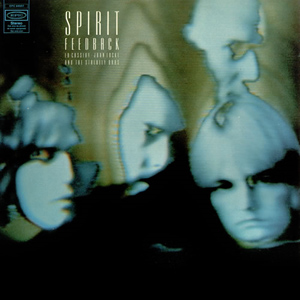
Feedback is the fifth album by the rock band Spirit. Released in 1972, it was the first Spirit album without original members Jay Ferguson and Mark Andes, and it was also the only Spirit album that did not feature Randy California performing on it, as California had left the group to pursue a solo career (Kapt. Kopter and the Twirly Birds).

Yellow Submarine is the tenth studio album by the English rock band the Beatles, released in January 1969. It is the soundtrack to the animated film of the same name, which premiered in London in July 1968. The album contains six songs by the Beatles, including four new songs and the previously released "Yellow Submarine" and "All You Need Is Love". The remainder of the album is a re-recording of selections from the film's orchestral soundtrack by the band's producer, George Martin.

Farther Along was the third album that Spirit released through Mercury Records, and their eighth album overall. Though Jay Ferguson was missing from the lineup, it is generally considered to be their first "reunion" album.

The Thirteenth Dream was the second "reunion" album from Spirit, and their eleventh album overall. It features re-recordings of seven of their best-loved tracks, along with three new songs. The most noteworthy things that can be said about the album are in regard to the excellent fidelity of the album, as it was originally recorded by an audiophile label and is an early digital recording, and that it was the first Spirit album to be released on CD, as it appeared in that format from Mercury Records in West Germany in 1984.
This is a discography of the krautrock band Can.
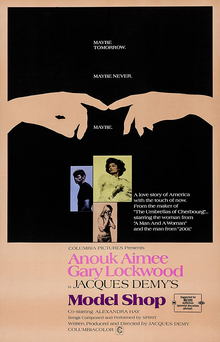
Model Shop is a 1969 romantic drama film written, directed and produced by Jacques Demy, starring Anouk Aimée, Gary Lockwood and Alexandra Hay, and featuring a guest appearance by Spirit who recorded the accompanying soundtrack. Demy made Model Shop, which was his first English-language film, following the international success of his film The Umbrellas of Cherbourg (1964). Aimée reprises the title role from Demy's 1961 French-language film Lola.

Kapt. Kopter and the (Fabulous) Twirly Birds is a 1972 studio album by Randy California.















